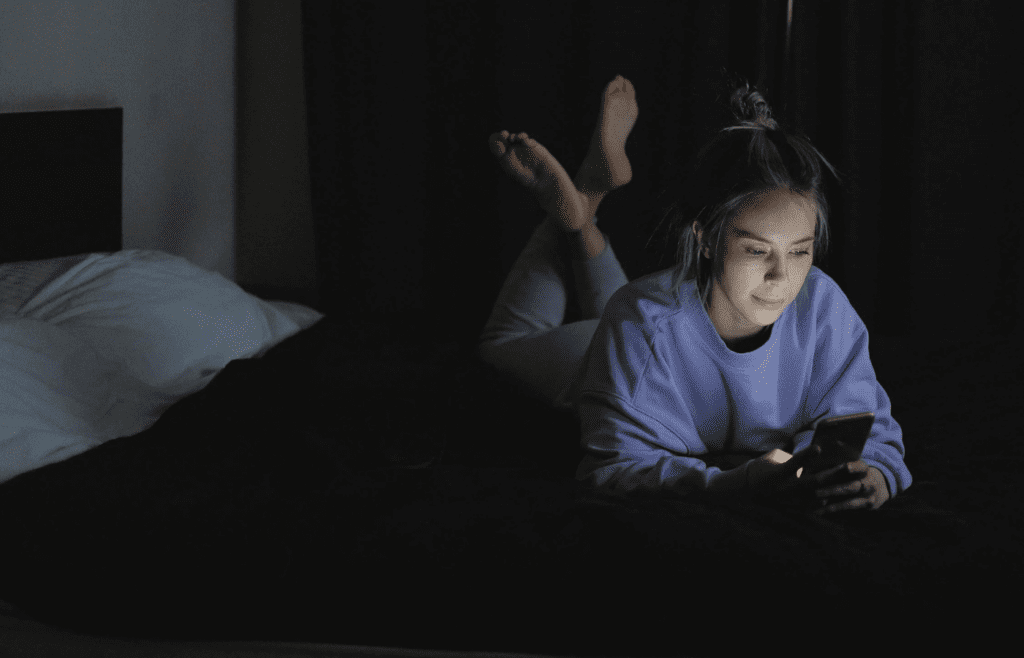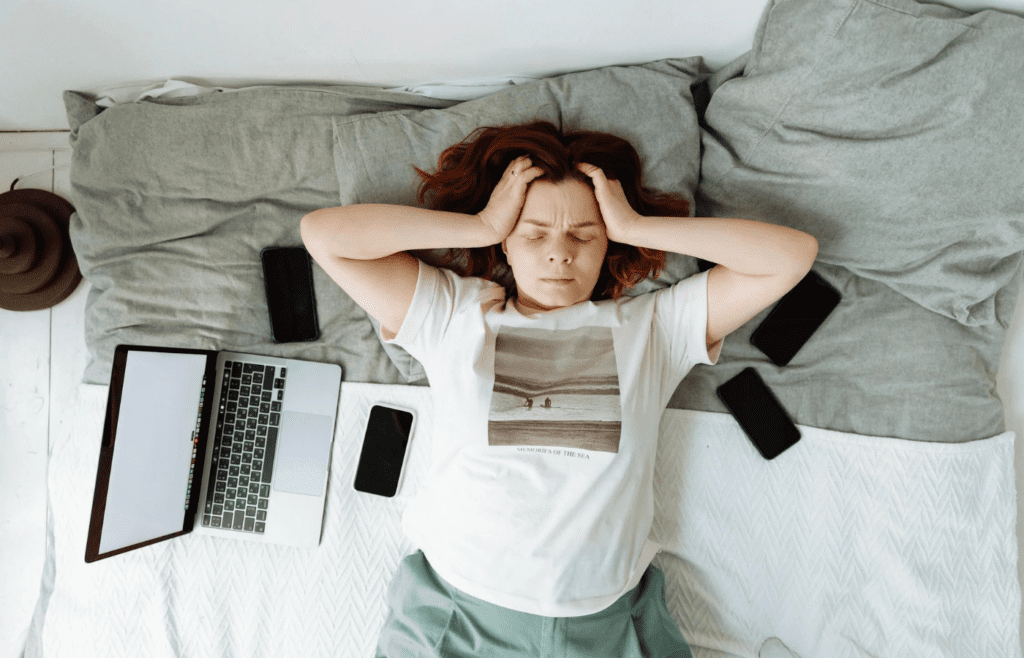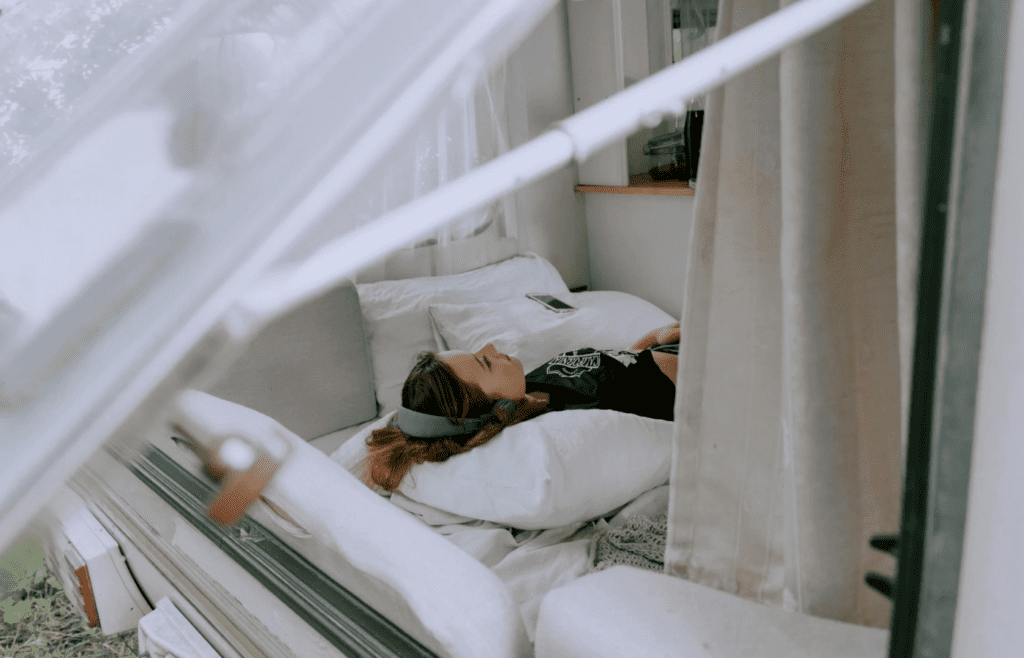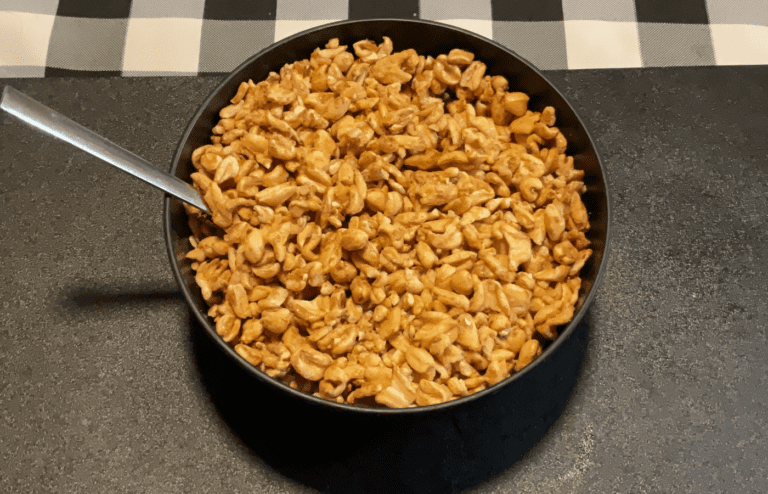Sometimes anxiety doesn’t come from significant life events—it builds slowly from small daily habits we barely notice. These patterns sneak into your routine and quietly make you feel tense, irritable, or overwhelmed without knowing why.
The good news? Once you spot these anxiety-triggering habits, you can start replacing them with healthier ones. Here are 20 habits that secretly fuel anxiety—and simple ways to break free from each one.
Scrolling Before Bed

Blue light and endless content overstimulate your brain. Before sleep, try reading, stretching, or listening to calming music.
Skipping Meals or Eating Junk

Blood sugar crashes worsen anxiety. Eat balanced meals with protein, fiber, and healthy fats to support a stable mood.
Constant Multitasking

Switching tasks constantly stresses your brain. Focus on one thing at a time to feel more in control.
Avoiding Exercise

Movement reduces stress hormones and boosts feel-good chemicals. Even 10 minutes of walking helps calm your mind.
Saying “Yes” Too Often

Overcommitting leads to burnout. Practice saying “no” to protect your time and energy.
Overthinking Conversations

Ruminating on what you said fuels anxiety. Remind yourself: most people are thinking about themselves, not critiquing you.
Drinking Too Much Caffeine

Caffeine can spike your heart rate and mimic anxiety. Try cutting back or switching to tea if you’re feeling jittery.
Bottling Up Emotions

Holding everything in builds inner pressure. Try journaling, talking to someone, or finding a creative outlet.
Not Getting Enough Sleep

Sleep deprivation fuels emotional instability. Aim for 7–9 hours a night, and keep a consistent bedtime.
Comparing Yourself to Others Online

Social media highlights aren’t reality. Limit your screen time and unfollow accounts that trigger insecurity.
Ignoring Your Breathing

Anxious breathing is often fast and shallow. Practicing slow, deep breaths helps calm your nervous system.
Worrying About Things You Can’t Control

You can’t control everything, but you can control your response. Focus on what’s in your hands.
Seeking Constant Reassurance

It feels good in the moment, but it creates dependence. Try self-soothing strategies instead of always asking others for answers.
Avoiding Tasks Because They Feel Overwhelming

Putting things off increases anxiety. Break tasks into tiny steps and tackle one piece at a time.
Skipping Fresh Air and Sunlight

Sunlight boosts serotonin, and nature lowers cortisol. Get outside for at least 10–15 minutes a day if possible.
Keeping a Cluttered Environment

Clutter stresses your brain. A quick 5-minute tidy-up can bring immediate calm.
Negative Self-Talk

Your inner voice matters. Swap “I’m terrible at this” with “I’m doing my best.” Speak to yourself like you would a friend.
Always Being “On”

Constant productivity mode keeps your brain in high gear. Build in daily downtime without guilt.
Ignoring Mental Health Check-Ins

Avoiding your emotions doesn’t make them disappear. Take time to ask, “How am I really feeling today?”
Believing Every Thought You Have

Your thoughts aren’t always true. Notice them, question them, and let go of the ones that don’t serve you.
Anxiety feeds on habit. But when you shift your daily choices—even just a few—you create more peace, clarity, and control. Start small. Choose one habit to change this week, and build from there.








